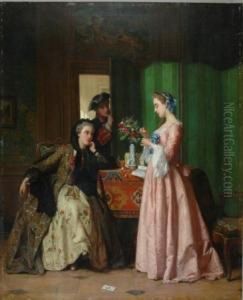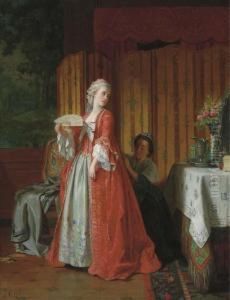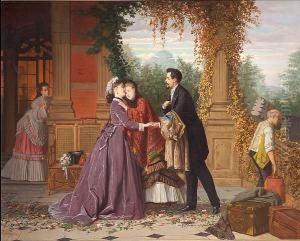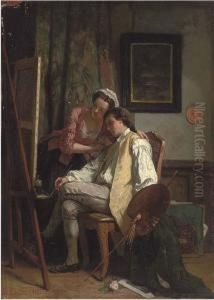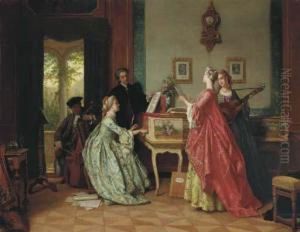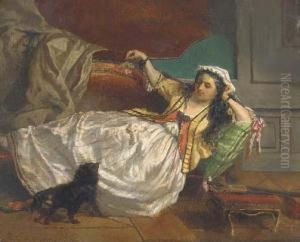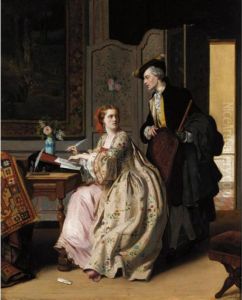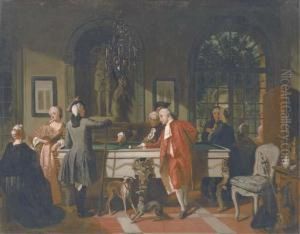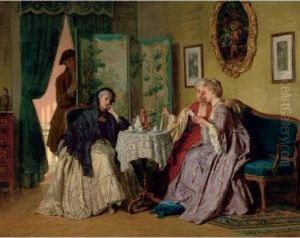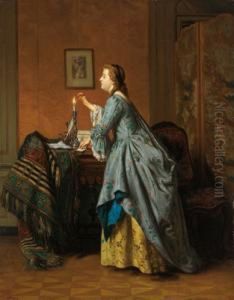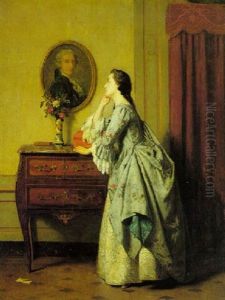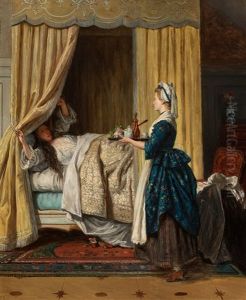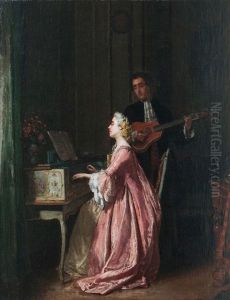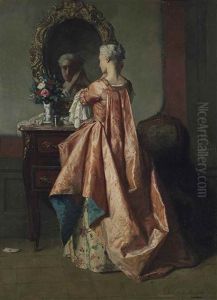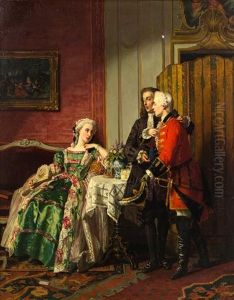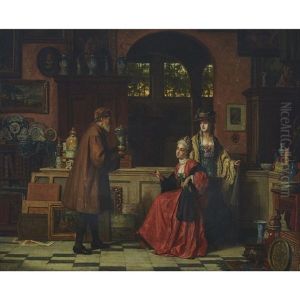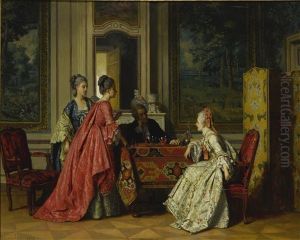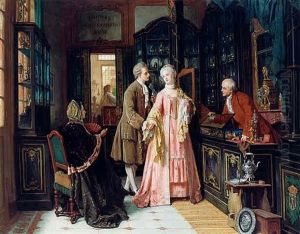Jean Carolus Paintings
Jean Carolus was a Belgian painter who was born on February 15, 1814, in Brussels. He was known for his genre paintings, meticulously showcasing interior scenes often with a humorous or satirical slant. Carolus studied under François-Joseph Navez, who was a director at the Brussels Academy and a prominent neoclassical painter. Under Navez's tutelage, Carolus honed his skills and developed a keen eye for detail and composition.
After completing his studies, Carolus traveled to Paris, which was then the epicenter of the art world. He was deeply influenced by the French painting tradition, particularly the works of the 17th-century masters. He also took inspiration from the Dutch Golden Age of painting, which was known for its attention to detail and the use of light. Carolus combined these influences with his own unique style to create works that were appreciated for their elegance and narrative quality.
Throughout his career, Carolus enjoyed considerable success. He exhibited his works at the Salon in Paris and won numerous awards for his paintings. His works were sought after by art collectors and patrons, and he received commissions from various influential figures of his time. Carolus's paintings often depicted the upper-class society of the 19th century, capturing the opulence and the intricate fashions of the period.
Jean Carolus was not merely a chronicler of the affluent; he also had a talent for capturing the subtleties of human expressions and interactions. His genre scenes are characterized by a sense of vitality and often include a mix of figures in domestic or social settings, engaged in conversation or leisure activities. The interiors in his paintings are richly decorated, reflecting the wealth and taste of the bourgeoisie.
Carolus's work remained popular throughout his life, and he continued to paint up until his later years. After a long and fruitful career, Jean Carolus passed away in 1897. His legacy lives on through his paintings, which continue to be admired for their technical precision and their charming portrayal of 19th-century life. Carolus's work is represented in various museums and private collections around the world, allowing contemporary audiences to glimpse the bygone era that he so vividly captured.
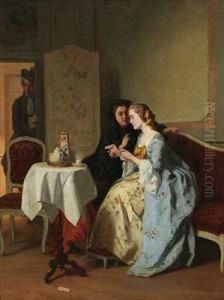
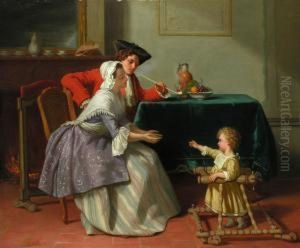
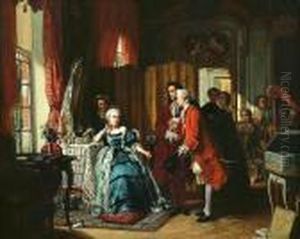
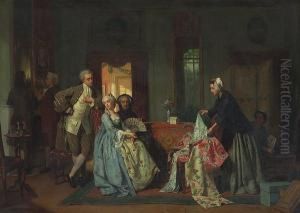
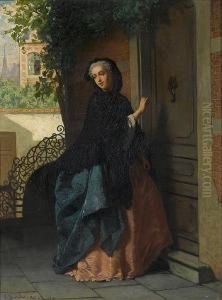
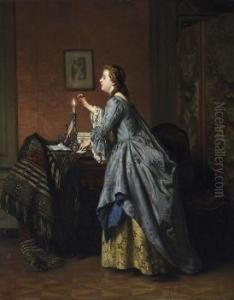
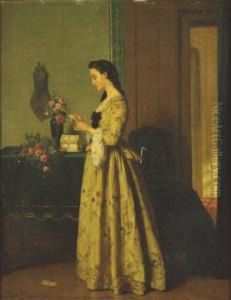
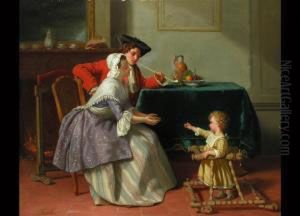
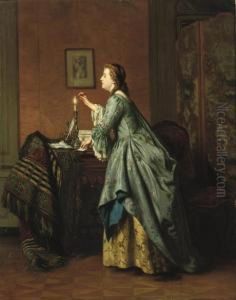
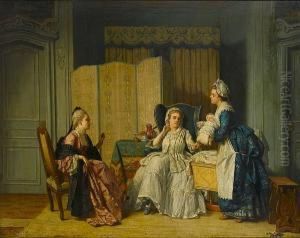
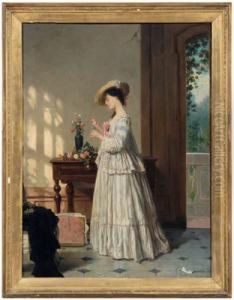
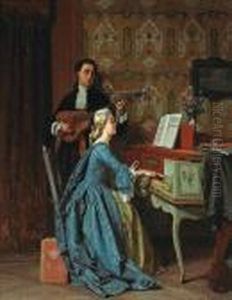
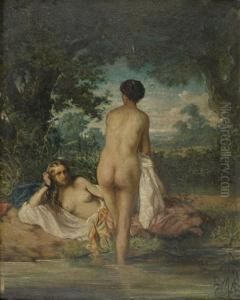
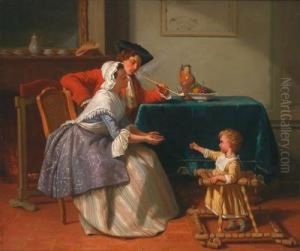
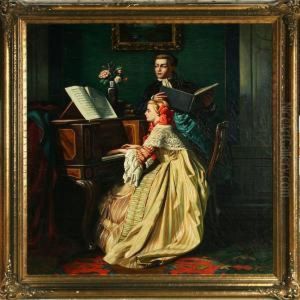
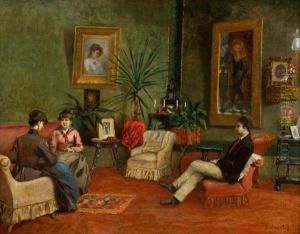
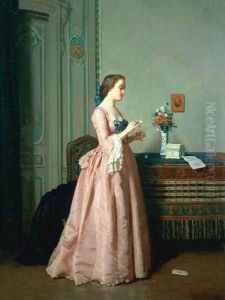
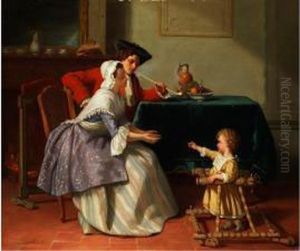
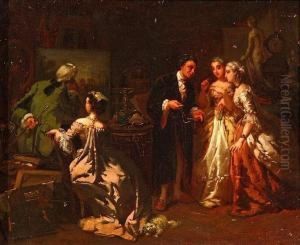
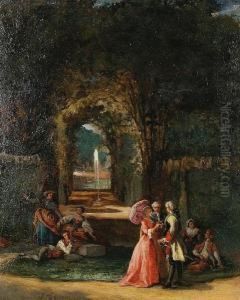
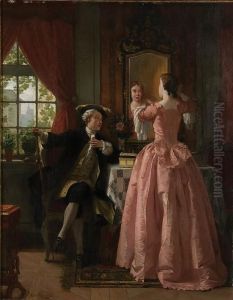
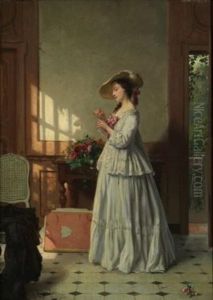
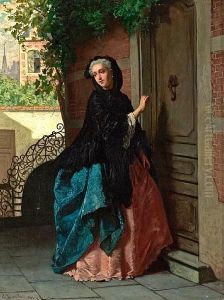
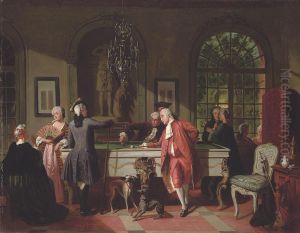
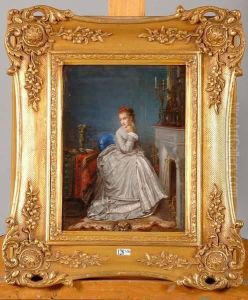
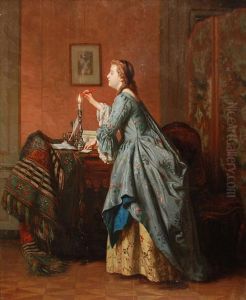
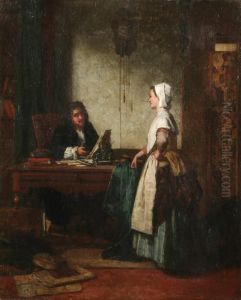
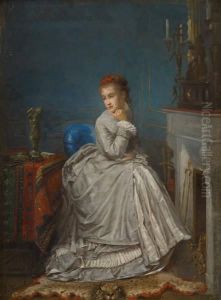
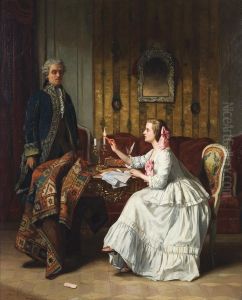
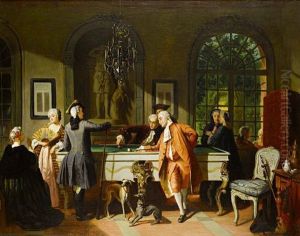
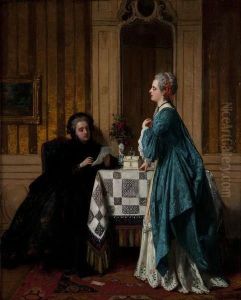
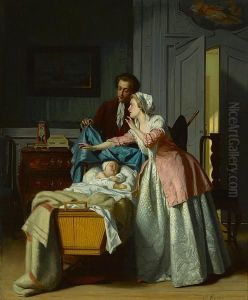
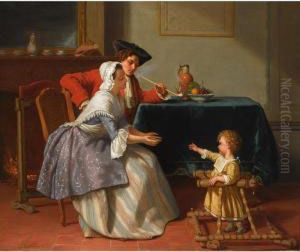
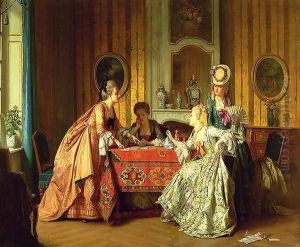
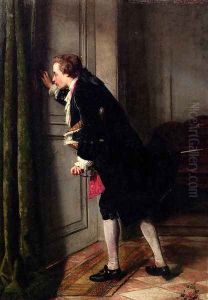
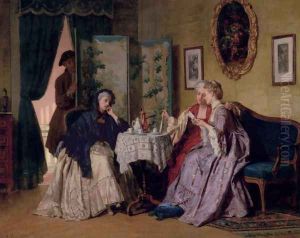
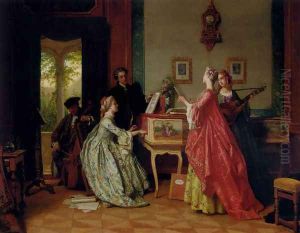
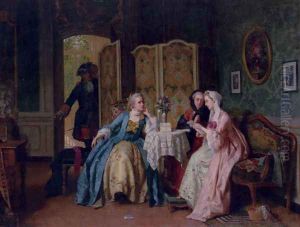
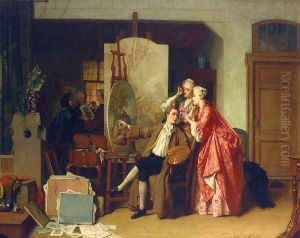
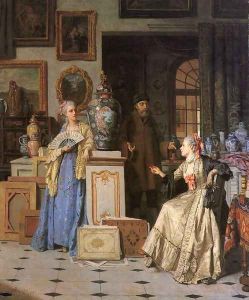
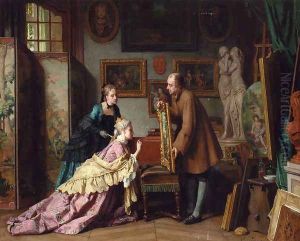
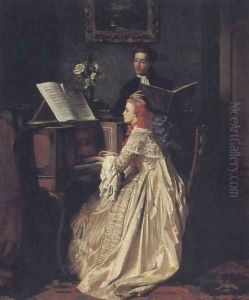
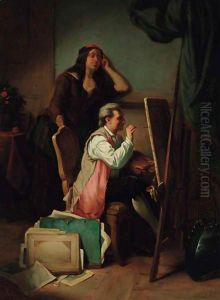
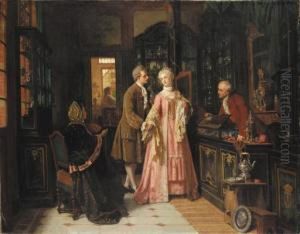
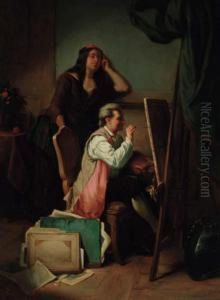
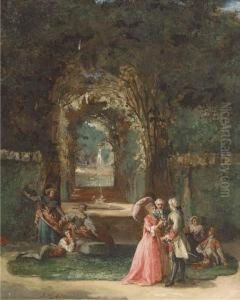
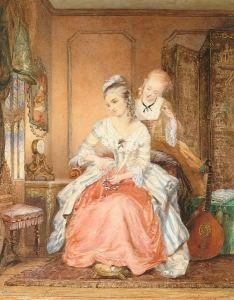
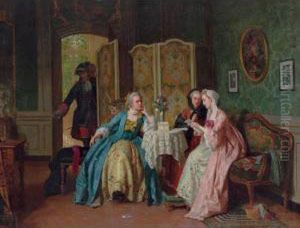
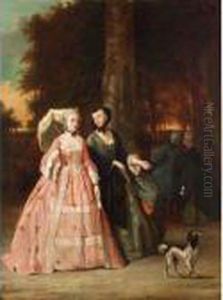
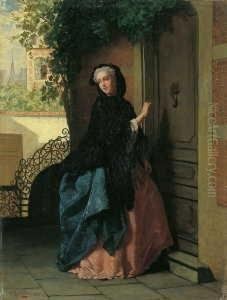
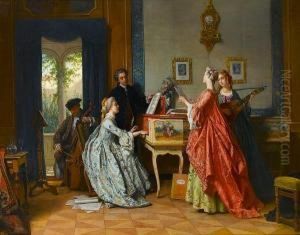
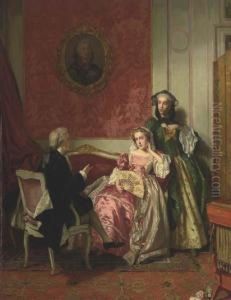
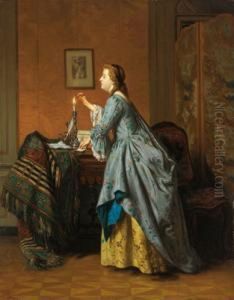
![[jean Carolus - Interior Scene: The Indiscreet Man - Oil On Canvas - Signed Lower Right]](https://www.niceartgallery.com/imgs/1219422/s/jean-carolus-jean-carolus-interior-scene-the-indiscreet-man-oil-on-canvas-signed-lower-right-ff99c289.jpg)
